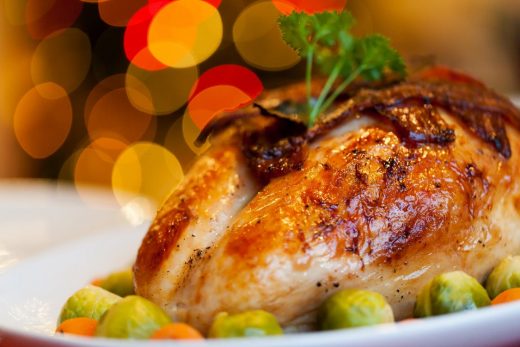If you still have Thanksgiving meal leftovers, the time to eat them is running out.
To ensure your Thanksgiving (or anytime) leftovers remain safe to eat, following the below guidelines from U.S. Department of Health and Human Services:
• Remember the Two-Hour Rule: All perishable items should be refrigerated within two hours of coming out of the oven or refrigerator. After two hours, perishable food enters the Danger Zone (between 40°F to 140°F (4°C to 60°C)) where bacteria can multiply quickly and cause the food to become unsafe. If foods have been left out for more than two hours, discard items to prevent foodborne illness. Exception to the two-hour rule, if the food is exposed to temperatures above 90°F (32°C) (like a hot car or summer picnic), refrigerate it within 1 hour.
• Use Small and Shallow Containers: Store leftover food in small, shallow containers in the refrigerator until the Monday after Thanksgiving Day or in the freezer for later use. Shallow containers help cool leftovers more quickly than storing them in large containers.
• Freeze or Consume Within Four Days: Use the Monday after Thanksgiving as a reminder that it is the last day you can safely eat leftovers. If you want to keep leftovers longer, freeze them within that four-day period to enjoy later. Frozen food stays safe indefinitely, though the quality may decrease over time. If you store leftovers in the freezer, they will be of best quality within two to six months. Reheat leftovers to an internal temperature of 165°F (74°C).
• Microwave Food Safely: When reheating in the microwave, cover and rotate the food for even heating. Arrange food items evenly in a covered microwave safe glass or ceramic dish and add some liquid if needed. Because microwaves have cold spots, check the internal temperature of the food in several places with a food thermometer after allowing a resting time. Cooking continues for a longer time in dense foods such as a whole turkey or beef roast than in less dense foods like breads, small vegetables and fruits.









